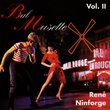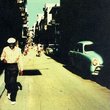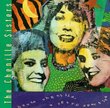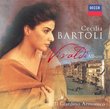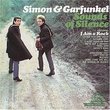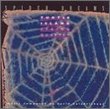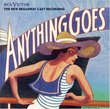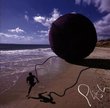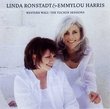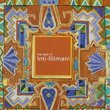| All Artists: Gaetano Donizetti, Richard Bonynge, Joan Sutherland, Luciano Pavarotti, English Chamber Orchestra, Ambrosian Opera Chorus, Dominic Cossa, Maria Casula Title: Donizetti - L'elisir d'amore / Sutherland · Pavarotti · Cossa · Malas · Casula · ECO · Bonynge Members Wishing: 1 Total Copies: 0 Label: Decca Release Date: 10/25/1990 Genre: Classical Style: Opera & Classical Vocal Number of Discs: 2 SwapaCD Credits: 2 UPC: 028941446121 |
Search - Gaetano Donizetti, Richard Bonynge, Joan Sutherland :: Donizetti - L'elisir d'amore / Sutherland · Pavarotti · Cossa · Malas · Casula · ECO · Bonynge
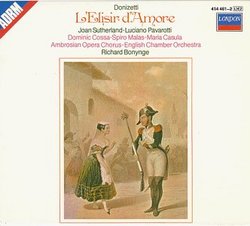 | Gaetano Donizetti, Richard Bonynge, Joan Sutherland Donizetti - L'elisir d'amore / Sutherland · Pavarotti · Cossa · Malas · Casula · ECO · Bonynge Genre: Classical
This appealing opera about Nemorino (Pavarotti), a poor young Italian peasant, hopelessly in love with Adina (Sutherland), daughter of a wealthy landowner, has a wealth of comic incidents, mostly based on the character of ... more » |
Larger Image |
CD DetailsSynopsis
Amazon.com essential recording This appealing opera about Nemorino (Pavarotti), a poor young Italian peasant, hopelessly in love with Adina (Sutherland), daughter of a wealthy landowner, has a wealth of comic incidents, mostly based on the character of Dr. Dulcamara, a traveling huckster of patent medicines who sells Nemorino a bottle of wine on the pretext that it is a love potion. It also has some of the most gorgeous melodies of all time, including the tenor favorite "Una furtiva lagrima," and a sentimental happy ending that brings out the best in Sutherland's temperament. The singing is gorgeous (this may go into history as Pavarotti's finest recording), and Sutherland elaborates the vocal line and even uses unfamiliar variations in the text that date back to Donizetti's lifetime. The comedy is handled reasonably if not exceptionally well. --Joe McLellan Similar CDs
Similarly Requested CDs
|
CD ReviewsThere's Nothing Else Remotely Like This 10/28/1999 (5 out of 5 stars) "This unmatchable recording of L'Elisir d'Amore is one of the few examples of absolute perfection in a musical recording... it could even be THE most perfect recording of any opera ever recorded. Not a note, not a tempo, not a characterization is anything less than exactly what you dreamed it should be. Pavarotti and Sutherland were never better, and that's saying alot for two of the most stunning, brain-dazzling voices of the century. Luckily for us, their voices were at their golden peak at the same time. Sutherland is particularly blessed here with the character of Adina... her knock-out coloratura soprano, in other recordings, is not always able to convey real depth of emotion. Here, however, she's found her niche... the haughty, well-educated, and uncommitting flirt whose cold, sometimes cruel, heart melts under Nemorino's ardent innocence is exactly right for Sutherland's intellectual voice... and she acts up a storm. Her version is too smart to be a heartless minx... she is seriously hard to catch; a real woman who knows her self worth... but who forgets to note the worth in others. Very few sopranos even attempt the final soaring cabaletta after Adina's ecstatic confession of love (with Pavarotti's Nemorino perfectly bewildered and stammering); most recordings skip it. But Sutherland makes the difficult trills and extended high notes sound like child's play; there's nowhere her voice can't go and she makes sure you know it. And Pavarotti simply can't be stopped from making every musical line float with lyric beauty. You almost wish Nemorino could keep anguishing in unrequited love just to have Pavarotti wring your heart forever as only he can. He and Sutherland keep stealing every scene from each other and together, in combined harmony, they are thrillingly sensuous. There's real electricity between them, especially when they sing softly. I also like that the most comic scenes of his are sensitively played; he doesn't take the slapstick humor to an overly clownish level... Nemorino may be laughed at by the other characters, but he's definitely always the romantic hero, even when under Dulcamara's "influence." The supporting singers are brilliant as well, with the best Belcore ever recorded... a real danger for Nemorino... but hysterically self-confident. The big ensemble scenes with full chorus are almost better than the arias and duets and that seems impossible. Don't even bother buying another version of this opera - they all sound disappointing and forced when compared to the magic contained in this one. I have ONE slight grumble and that's only that they created a disc break right before Nemorino's beautifully imploring "Adina, credimi." The panicked intensity of the scene's drama and the music that boils up right before his broken-hearted plea should have spilled smoothly into the aria without a break in the action. But I had to work at finding any criticism. This is a dream-come-true recording." Simply the Best! John C. Wood | Washington, D.C. | 06/14/2000 (5 out of 5 stars) "This is the most magnificent recording of this opera ever to be produced. Dating from two recording session in 1972, London/Decca brought back to the studio the most successful bel canto trio to have made recordings.It is immediatly apparent from the first moments of the Overture, that Bonynge has a real feeling for the drama, beauty, and fun that is in the score. His tempos are often on the more expansive side, but they are always crisp, and very raely does one wish for a faster reading. In fact, the unusually slow (but not sluggish) speed for the Act II duet "Venti Scudi" allows the full glory of Pavarotti's voice to shine through, his command of legato and smooth, rich velvety tone made more imprssive than in a more clipped speed. Something else that comes through so well on this recording is Pavarotti's perfect use of tone color and shading, along with his magical use of language to express every emotion so distinctly, that one could even understand the Italian without the Libretto!Dame Joan is another matter, however. While her top notes (notably the high D's) show no sign of wear and tear, her upper-middle register does very slightly. It is interesting that just three years before this recording, she made what is arguably the greatest recording of her life in La Fille Du Regiment, with many of the same cast members. There, her tone was unimaginably bright and sheer, with nearly every syllable well articulated, something she usually had trouble doing. Here, she covers many consanants with an open vowel-like sound, to produce a magnificent tone, to be sure, but a warmer, older sounding one. But it is still as glorious as ever, and perhaps more so, and not one drop of her stupendous coloratura ability has been lost, no one could sing it quite like this! Add to this her insight into Adina which is quite good, if just a little beneath the rest of the singers. Both Sutherland and Pavorotti are inspired to some fine comic acting, and some wonderful introspective moments too, by the first-rate singing and acting of Spiro Malas and Dominic Cossa. Malas makes a superb Dulcamara, with all his blustery bravado and excellent Italian. His tone is a little gritty, but this is never in any way intrusive.Cossa makes a fine Belcore, a little strained in coloratura and a little thin sounding, but also with magnificent vocal acting, and firm straightforward tone.All in all, while this may seem a critical review, it is not. Every singer is first rate, very individual, and characterful. Even the much-touted Alagna versions cannot quite match the excellence of this recording, which is simply the best!" Overall, very good Michael J. Mallon | Brooklyn, NY United States | 12/14/2001 (4 out of 5 stars) "This is indeed a very good recording of Donizetti's comic masterpiece. Pavarotti's singing is simply marvelous. Sutherland is a fine Adina... her singing is fresh and beautiful, despite her age. Bonynge did a splendid job conducting.
The recording is not without flaws though. Malas fits the role of Dulcamara quite well, but his timing is off at times. The quality of his voice, however, is very agreeable. Cossa is mediocre Belcore, his voice sounding rather weak at times...especially in the finale. Don't misunderstand me; Pavarotti and Sutherland's magnificent singing alone makes this recording well worth the money. I think many reviewers are overexaggerating this recordings weak points, while down playing its finest qualities. I say, try it... chances are, you'll like it. =)" |

 Track Listings (16) - Disc #1
Track Listings (16) - Disc #1
